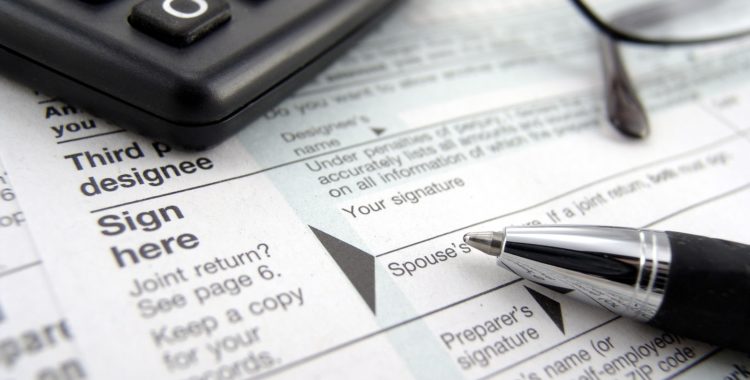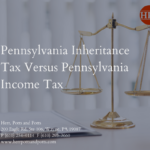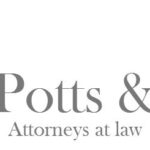Who Pays Pennsylvania Inheritance Tax?
Estate planning often takes into account the taxes that will need to be paid when the estate is passed on to the deceased’s heirs. There are two major types of taxes paid when a will is passed through probate: estate taxes and inheritance taxes. Proper estate planning works to minimize these taxes as much as possible, but most cases still end up with at least some property becoming taxable. The Pennsylvania inheritance tax lawyers at Herr Potts & Potts explain who bears the burden of paying inheritance taxes under PA law.
Who is Responsible for Inheritance Taxes in PA?
When taxes pass through a will, they go through a process known as probate. Probate is a requirement whether there is a will or not, and the process sorts out who is responsible for estate administration, assembling the estate, and disbursing the estate to the heirs. It is also when any estate litigation for will challenges occurs.
Inheritance taxes are a portion of each heir’s inheritance. These taxes are paid as a percentage of the total value that each person receives under the will. This means that the burden of paying inheritance taxes falls to the recipient of any share of the estate.
There are some assets, known as “non-probate assets,” that do not pass through a will or the PA intestacy statute. These assets are usually not subject to the same taxes. However, any time you receive money, you may be required to pay income tax on it, and you should discuss those payments with an attorney.
Heirs who receive a share of someone’s estate are automatically required to pay inheritance taxes in most cases. Different people are required to pay different amounts for inheritance tax, with individuals more closely related to the decedent paying less inheritance tax. This breaks down into the following tax percentages for different individuals:
- Children under 21 pay no tax on inheritances.
- A spouse pays no tax on inheritances.
- Other direct descendants pay 4.5% inheritance tax. This includes adult children and any of their direct descendants (e.g., grandchildren, great-grandchildren, )
- Lineal heirs pay 4.5% inheritance tax. This includes parents, grandparents, and anyone else in your direct family line.
- Siblings pay 12% inheritance tax.
- Other heirs pay 15% inheritance tax.
For purposes of these statutes, “children” include adoptive children and stepchildren, as well. This means that your spouse’s children pay the same 4.5% tax if they are over 21, or no tax if they are under 21.
Some other transfers are tax-free. There are limited exemptions for transferring farmland to certain qualifying parties. Transfers or charitable gifts to certain organizations as well as bequests to the government are also tax-free.
If you have a complex or unusual family structure, it may be difficult to understand what tax you pay. Consult with an attorney to ensure that your tax payments are on time and you avoid any tax penalties for late payments.
Estate Tax Vs. Inheritance Tax in PA
The other major tax paid on inheritances and estates is the “estate tax.” While inheritance taxes are paid from the inheritance that an heir receives, estate tax is paid from the estate that a decedent leaves behind. Pennsylvania is one of the few states that does not use an estate tax, opting to shift the tax burden to the recipients of the estate. However, federal estate taxes might apply in some cases.
Estate taxes are only required on especially large estates. There is a threshold for federal estate taxes, which changes each year. For 2018, estate taxes are paid on estates totaling more than $11,180,000. An $11-million-dollar estate is rare, so estate taxes are not incredibly common. In calculating the estate tax, taxpayers must include the fair market value of property, all cash, and any lifetime gifts given in the years leading up to the decedent’s death. Understanding the tax rules for these and properly planning death taxes is important for ensuring your heirs receive the full estate they deserve.
Contact Our Pennsylvania Estate Planning Attorneys Today
For help understanding the different tax burdens associated with probate assets and non-probate assets, it is important to talk to an attorney about your case. Whether you need help paying inheritance taxes or planning your estate to reduce the overall taxes, speak with an experienced estate planning lawyer today. The Pennsylvania estate planning attorneys at Herr Potts & Potts help with estate planning, lifetime gifts, establishing trusts, and managing affairs during estate administration. For help with your case and to schedule a consultation, contact our law offices today at (610) 254-0114.



